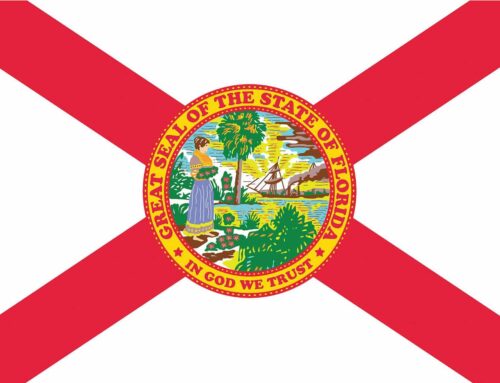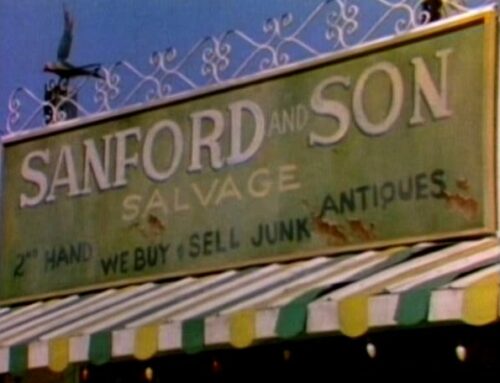Is comprehensive coverage worth it? It often is. But the truth is: It depends on your situation, your budget, and your tolerance for risk.
If you would undergo significant financial hardship if your car was stolen, destroyed in a flood, or totaled in a deer collision tomorrow, you probably need comprehensive insurance coverage. If loss of your car means loss of your job, or if it means you can’t get the kids to school anymore, then you probably need comprehensive insurance coverage.
What does “comprehensive car insurance” mean?
“Comprehensive” insurance is sometimes referred to as “full coverage.” If your insurance policy includes comprehensive coverage, it protects you from a much wider range of hazards compared to collision coverage.
With collision coverage, your insurance company won’t compensate you for any damage to your vehicle that’s not a direct result of a collision with a car or an inanimate object. But they will pay out on many non-collision-related claims if you have a comprehensive insurance policy.
Here are some examples of claims that a collision policy would not pay out on but a comprehensive policy will:
- Car theft.
- Carjackings.
- Catalytic converter theft
- Damage from burglary/break-ins
- Deer collisions
- Floods
- Hail damage
- Wind damage
- Falling trees/objects
- Fire
- Rodent infestation
- Bee or wasp infestation
Of course, even comprehensive car insurance doesn’t cover everything. Comprehensive doesn’t cover collision damage (but collision insurance does, and people who have comprehensive coverage almost always also have collision coverage).
Other common exclusions include damage incurred while in commission of a felony (State Farm isn’t going to cover your getaway car!) and damage you cause yourself. Carriers also won’t pay out if they believe you committed fraud by misstating your location, how you have the car stored/garaged, and whether you are using your vehicle commercially without disclosing that to the insurance company.
How much will comprehensive insurance cover?
In most cases, comprehensive coverage will compensate you for your losses up to the actual cash value if your vehicle – minus whatever deductible you chose. Not the replacement value, unless you planned in advance and both replacement value coverage.
In this sense, comprehensive and collision insurance policies calculate their payout amounts in the same way.
That means you won’t get a check for the amount the car cost when you bought it. The carrier will subtract for mileage and wear and tear, and subtract your deductible from the new, lower amount.
If you don’t want your carrier to subtract for mileage or depreciati0n (as may be the case with collectible cars that tend to hold their value or even appreciate over time), call us and ask about an agreed value policy. These will come with mileage limits.
Is comprehensive insurance worth it?
That question really involves answering three different questions:
1. Would you suffer a significant financial setback and need cash if your car got stolen tomorrow?
2. Is comprehensive coverage fairly priced?
3. Would comprehensive coverage pay out much more than your deductible? (If your car is worth less than your deductible, or just slightly more, it wouldn’t make sense to pay for comprehensive coverage!
If the answer to all three questions is “yes,” with #1 being the most important, you should have comprehensive coverage. You should also have comprehensive coverage if you’re making payments on your car, unless you could easily pay it off tomorrow without blinking an eye. In almost all cases, the finance company requires you to carry comprehensive coverage as a condition of the loan.
Anyone who would suffer a significant financial setback if they lost their car tomorrow should seriously consider holding comprehensive coverage on their car. If your car is your livelihood, if you need your car to get to work, or just to get groceries, and you can’t afford to immediately replace your car if it got stolen tomorrow, you have a need for comprehensive insurance.
Going without it is a gamble you can’t afford to lose.
Who doesn’t need comprehensive coverage?
Not everyone needs full coverage. However, by going without it, you are essentially opting to self-insure against these risks. That is, you are your own “insurance company.”
This may make sense if you can easily afford to replace your car if it got stolen and destroyed tomorrow. Going without comprehensive coverage decreases your car insurance premiums somewhat. But it vastly increases your exposure to risk.
You also might not need comprehensive insurance if your car’s value is barely above the deductible. Consider your deductible and the likely actual cash value of the car. If your annual premium is large compared to the money you’d actually receive if they paid out on a totaled car, it might make sense to save your premium dollars.
Many people who can afford to replace their car tomorrow, and who have a lot of assets to protect choose to buy additional liability insurance, instead.
Everyone’s situation is different!
Is comprehensive insurance a good deal?
Not all carriers price comprehensive coverage the same way. They may assess risk in very different ways. Some penalize young drivers more. Others really overprice drivers who have bad credit. Some may charge way more than others because of your zip code.
Pricing in the car insurance world can be all over the map.
This is where it helps to be working with a truly independent car insurance broker, rather than one “captive” to a single insurance company. An independent broker can shop your application among many different insurance companies, and help you select the one among many that provides you the most value.
If a car insurance company is selling through a “captive” insurance agent – one who couldn’t recommend a better policy if he wanted to – then they have little incentive to provide competitive pricing. Few of their customers actively shop around. And they know it.
By going through an independent insurance broker, you force the car companies to compete to earn your business, and provide value for the money.
At Select Insurance Group, we are always independent. Our agents are working for you. Not the insurance company.
How to Add Comprehensive Coverage to Your Policy
Adding comprehensive coverage, or just seeing if you are getting a fair deal from your current carrier, is very easy:: All you have to do is contact us, and fill out our easy online form. We’ll take it from there.
See you on the road!
Steve “Mr. Insurance” Ludwig
CEO, Select Insurance Group
Related Posts






